SIGN UP FOR NEWSLETTER
Be the First to Know. Sign up to newsletter today
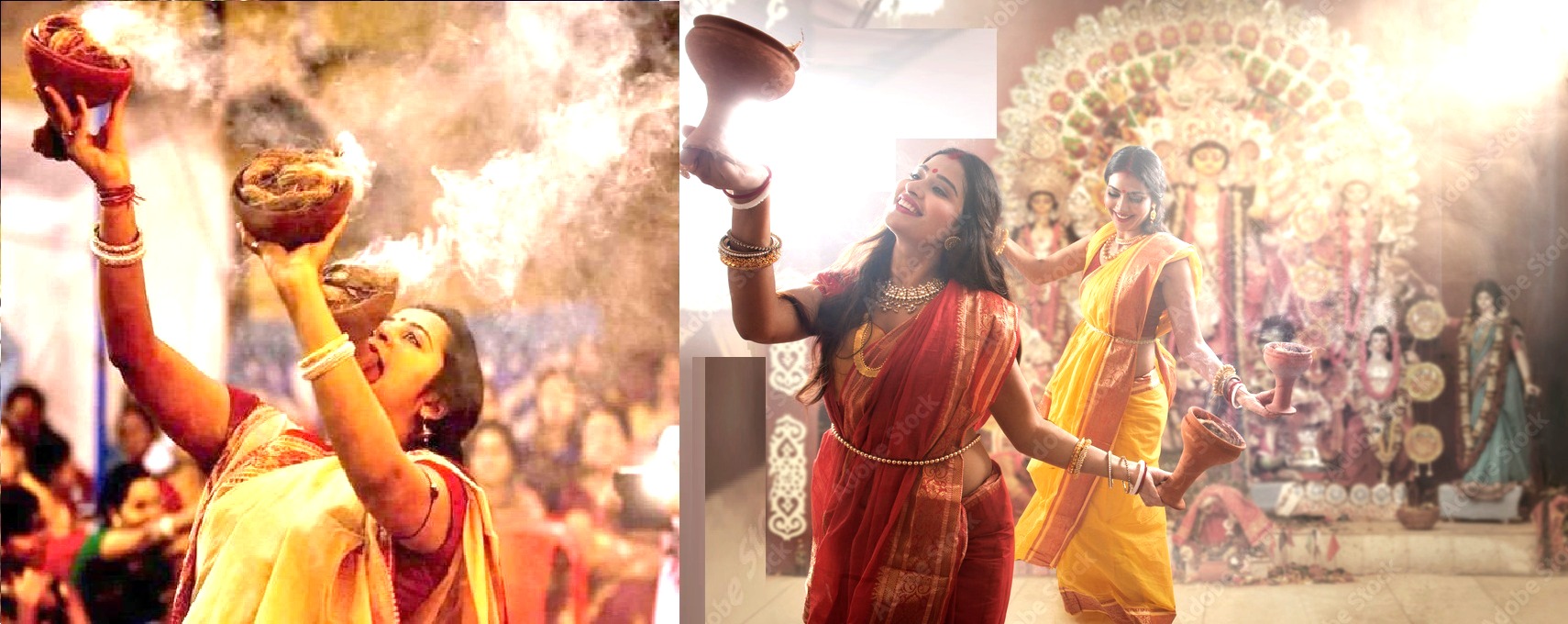
Monika Chauhan
878 views
add comment
Mahatma Gandhi once said: “A nation’s culture resides in the hearts and in the soul of its people.” Well, what better defines the culture of a multicultural country like India than its festival traditions , which are then manifest in peoples minds and hearts ? Each and every Indian State contributes with its share of time honored practices and traditions to worship the divine. While there are celebrations happening throughout the year, the months starting from September show the country at its vibrant best. One of the widely celebrated Hindu festivals, Navaratri now comes knocking at the door to get you into the festive spirit. It is celebrated in the lunar month of Ashwin and is a nine-day long festival. Navratri Images from across the country are captivating.
Celebrations are colourful, varied & raucous. Gets crowded at times. Yet, it is the festive spirit of Navratri and Diwali, that follows soon after, that unifies India. In other words, India celebrates Navratri together albeit in myriad ways.As a matter of fact, customs & rituals differ from one State to another. It is the kaleidoscope of the performing arts, traditions, clothing & food that places Navratri as one of the most exciting & interesting Indian festivals.
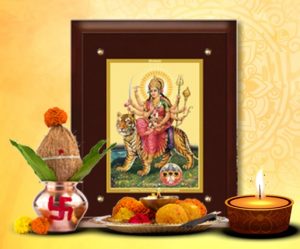
It is celebrated for 2 reasons
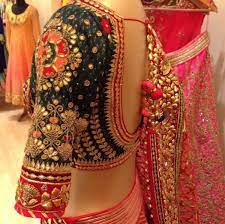
Swati Oberoi
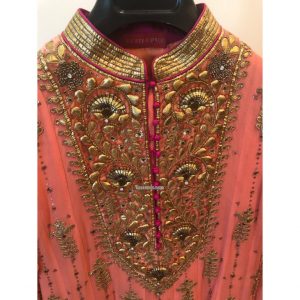
Swati Oberoi
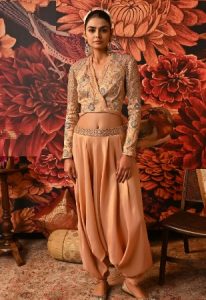
Aza Fashion
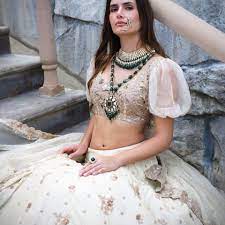
Swati Oberoi
The most important thing about these festivals is that it brings people together and helps them to bond over common culture & rituals. It helps bring positivity and joy to our everyday lives.In addition, special festive food is prepared in homes and is an integral part of the celebrations.
The best part about Navaratri is it is celebrated across the length and breadth of the country in distinct ways. However, the common thread of the Mother Goddess connects them all. In all the traditions, this Indian festival marks the victory of good over evil. Infused with the flavour of diverse customs, the celebrations span over a period of nine holy nights.
Let us take a look at all the cultural traditions in important regions of India which treasure Navratri.
In North India, people do puja in their homes. Many people fast on all 9 days or more importantly avoid eating non vegetarian food.The festive fervor reaches its zenith in the last three days , the 7th, 8th and 9th day (known as Saptami, Ashtami and Navami in Hindi ). This is the time when feeding seven to nine young girls is considered auspicious . It is known as Kumari Poojan or Kanjak Pooja. Kumari means a young girl.
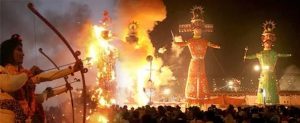
Ravana Burning
The final day of Navaratri is popularly celebrated as Dussehra or Vijaydashmi in North India. The word Dussehra comes from two Sanskrit words: ‘dasha’ (the ten heads of Ravana) and ‘hara’ (defeat). It is a festival of the victory of good and its power to defeat evil. This occasion calls for burning the colossal effigies of Ravana, the demon king of Sri Lanka. Huge crowds gather to witness the event & watch the fun in public spaces. In the Ramayana, the demon king Ravana, captured and took Sita, wife of Lord Rama, to Sri Lanka. In the pursuit of his wife, Lord Rama reached Sri Lanka and killed Ravana after a 10-day long rigorous battle.
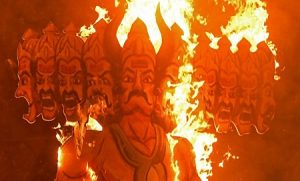
Ravana 10 Faces
To celebrate the day, people also burn the effigies of Ravana’s brother Kumbhakarna and son Meghnath along with the evil King. In addition, you will also find various play enactments of Ramayana being performed before Dusshera.
Best Shopping places –Chandni Chowk ,Karol Bagh, Lajpat Nagar,Sarojini Nagar
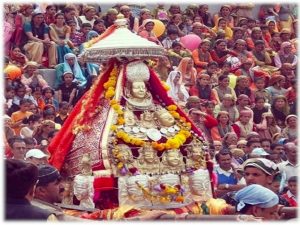
Kullu Festival
In the Himalayan foothills -Kullu in Himachal Pradesh, Dussehra is celebrated with much fanfare. Thonkuru is a Himalayan trumpet & the traditional drum accompany the procession of the gods through the villages.For example,singing & dancing attracts a lot of ordinary folks to join the crowd. Lankadahan ,burning the effigy of Ravana on the banks of the river , is a huge spectacle. Lakhs of people from nearby towns throng to participate in the festivities.
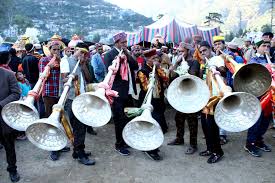
Thonkuru
The season of ‘Pujo’ attracts multi religious crowds in Kolkata. People come from around the world to witness Durga Puja in Kolkata. Bathed in light and decked up with the magnificent pandals, the City of Joy is a carnival & a spectacle for 10 days. Special Pandals or marquees are erected and huge idols of goddess Durga are installed. The idol of the goddess is uniquely crafted and is distinct in each pandal . For instance, she is seen atop a lion or driving a spear into the demon and so on. The eyes of the goddess have special significance and are beautifully etched . Crafting the idols is an art and special potter communities known as kumartuli (https://www.shopkhoj.com/art-
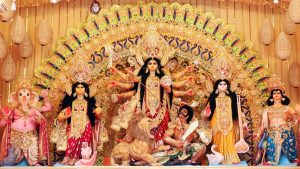
Durga Puja Pandal
Be it a residential area or an office complex, you can spot the meticulously crafted Maa Durga idols in themed puja pandals across the city. From a small tea stall owner to a hotshot businessman, everyone comes together to enjoy this wonderful occasion. There is a lot of enthusiasm & joie de vivre.Moreover, the festivities take an interesting turn in the last four days. The community is involved in joining in the chorus with the dhol (drums), the conch ,& in the bhog(food). The bhog is often prepared by the community. The pomp & pageantry is everywhere.
Finally, the puja ceremonies culminate on the day of Durga Visarjan.(immersion).They bid farewell to the Goddess with song and dance.As a matter of fact,the idols of the Goddess are taken out in a procession for immersion in the Hooghly River .
Best Shopping Places in Kolkata – Gariahat Market , New Market
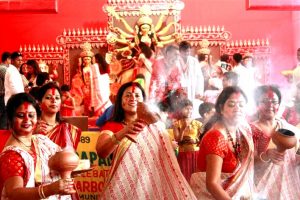
Durga Puja Celebration
While all of India commemorates the nine-day festival with much enthusiasm, nothing beats the celebrations in the State of Gujarat. The energy-filled traditional dances, Garba & Dandiya, steal the spotlight during Navaratri evenings. For example, the revelries keep youngsters awake at nights.While Garba is performed in circular movements, people use colorful sticks to take part in Dandiya. In other words, this dance form glorifies the power of Goddess Durga.
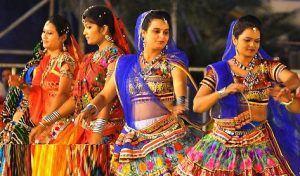
Garba Dance
Colourful Dresses for Dandiya Nights
Dressed up in colorful traditional ensembles, people gather in groups to dance to popular songs every evening. For the Dandiya Raas, the traditional attire for women comprises the colorful three-piece outfit beautified with shells, beads and mirror work. For example, this outfit is popular by the name ‘Chaniya Choli’. It includes a Choli (embroidered blouse) and a Chaniya (long flared skirt). There is also an embellished bandhani dupatta.
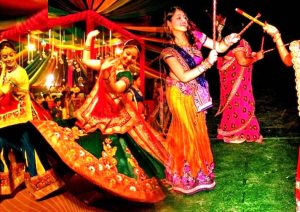
Dhandiya
While participating in the Garba dance, men typically wear a short round kurta along with kafni pajamas. Moreover, pagdi (turban), kadas (men’s bracelets) and mojiris (traditional shoes) are added to complete the look.
If you are in a country like India, you certainly cannot run out of reasons to rejoice. For instance, let us take you to the Southern part of India, particularly the states of Tamil Nadu, Andhra Pradesh and Karnataka, to feast on the dolls, the lights, colors, and music.
This unique festival of dolls is just another way of celebrating Navaratri in Southern India.The local residents exhibit beautiful dolls, typically made of mud. They arrange these dolls on wooden steps specially erected for this purpose in their homes.These dolls are mostly of Hindu mythological characters and include miniatures of different gods, goddesses, animals and people. They are symbolic of Mother Earth as they were originally made in mud.
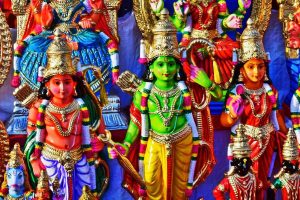
Ram Laxman & Sita
As a matter of fact, it is customary for the dolls to be handed down from one generation to another in most families and also as part of marriage gifts. The earliest known person to have used them is always the grandmother in the family. With a beautiful thematic representation of ancient stories, the exhibit goes on to delineate scenes from the Ramayana and the Bhagavad Gita.
Best Shopping Places in Chennai – Mylapore,T.Nagar
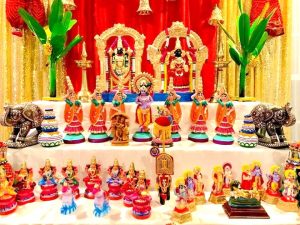
Golu Dolls
Moreover, the Kolu tradition brings alive the magic of Indian mythology and folklore. Navratri offers a wonderful platform to keep all family members in the house engaged through the thread of culture.
The Woodeyar dynasty played a prominent role in keeping alive the traditions of Navratri in Mysore. A grand procession of caparisoned elephants and the Gods in tow is a sight to behold. In addition, cultural performances are actively encouraged in this period. Finally, the Mysore Palace is lit up with 1000s of bulbs and is a spectacular sight.
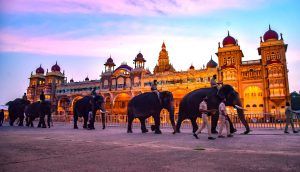
Caparisoned Elephants
In conclusion, the festival of Navratri is a socio cultural idea to bring the community together & keep the rich cultural fabric interesting
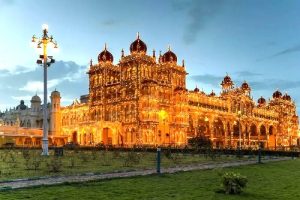
Mysore Palace
Shopkhoj Wishes its viewers Happy Navratri Celebrations
Other Related Blogs are :-
Mud Dolls Come Alive in Navratri
The Conch Shells & Dhol drums in Durga Puja
Be the First to Know. Sign up to newsletter today